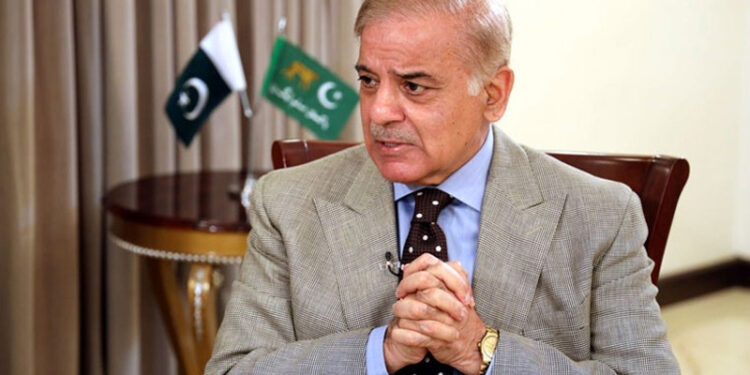Overview: Prime Minister Reacts to Controversial Salary Hikes
Islamabad, Pakistan – In response to widespread public criticism, Prime Minister Shahbaz Sharif has officially taken notice of the significant increase in salaries for top parliamentary officials, including the Chairman Senate, Speaker National Assembly, Deputy Chairman Senate, and Deputy Speaker National Assembly. Sources from the Prime Minister’s Office confirmed that he has demanded a detailed report from the relevant officials to justify these increments.
The development comes at a time when Pakistan is grappling with a deepening economic crisis, and the federal government has proposed only a modest 10% increase in salaries for general government employees in the latest fiscal budget.
Background: Sudden Pay Raises Amid Budgetary Challenges
According to official sources, the recent pay hike has elevated the monthly salaries of key parliamentary figures to over a million rupees, triggering intense debate in political circles and on social media. The salary revisions were reportedly approved without public consultation or thorough parliamentary debate, raising concerns about transparency and accountability.
Disparity in Salary Increases
While the government has allotted a 10% pay raise for general public servants in the upcoming budget, this increase for parliamentary leadership is substantially higher, leading to accusations of favoritism and elite privilege.
This discrepancy has not only angered the public but also members of the ruling coalition. Critics argue that at a time when inflation, unemployment, and utility costs are soaring, approving a lavish increase for high-ranking officials is both economically irresponsible and politically insensitive.
Prime Minister’s Directive: Accountability and Transparency Demanded
Prime Minister Shehbaz Sharif, in light of public sentiment and fiscal responsibility, has ordered a formal review of the salary increases. According to government sources:
“The Prime Minister has asked the Speaker National Assembly and Chairman Senate to submit a comprehensive report explaining the basis of the salary hikes.”
The report will be used to determine whether the increases were appropriate or need to be reversed or modified. Sources suggest the Prime Minister wants to ensure uniformity in salary policy across public offices, particularly during an ongoing financial crunch.
Public and Political Reaction: Khawaja Asif Voices Dissent
Among the notable political figures to speak out against the move is Defense Minister Khawaja Asif, a senior leader of the ruling Pakistan Muslim League-Nawaz (PML-N). In a strongly worded statement posted on X (formerly Twitter), Asif condemned the decision, calling it:
“An act of economic obscenity.”
He emphasized that the country is facing extreme economic hardship and that such generous salary increases send the wrong message to the public, especially when the common citizen is struggling with record-high inflation, stagnant wages, and job insecurity.
Khawaja Asif’s stance has been praised by many for being in line with the public sentiment, even though it reflects internal differences within the ruling party over economic policy priorities.
Current Salary Structures: A Comparative Snapshot
Following the increase, the new monthly salaries for top parliamentary posts reportedly exceed Rs. 1 million, a figure that is many times higher than the average public servant’s wage in Pakistan. The breakdown is estimated as follows:
- Chairman Senate: Approximately Rs. 1.25 million/month
- Speaker National Assembly: Similar to Chairman Senate
- Deputy Chairman Senate / Deputy Speaker: Rs. 1 million or more
- Federal Ministers: Also reportedly under review for potential increases
In comparison, the average BPS-17 government officer earns around Rs. 90,000 to Rs. 120,000 per month, making the disparity all the more glaring.
Context: Ongoing Economic Crisis in Pakistan
Pakistan is currently navigating one of the most challenging financial periods in its history. The nation is:
- Engaged in ongoing negotiations with the IMF for a new bailout package.
- Battling record inflation, which touched 28.3% in April 2025.
- Experiencing a surge in utility bills, food prices, and fuel costs.
- Struggling with a depreciating rupee and dwindling foreign reserves.
Given this context, the salary hikes for top officials appear tone-deaf and ill-timed, fueling widespread discontent.
Media and Civil Society Reactions: Calls for Reversal
Several independent media outlets, economists, and civil society organizations have strongly opposed the salary increases, urging the government to immediately roll back the decision.
Economic Analysts Weigh In
Economists argue that such decisions not only strain the national budget but also demoralize lower-tier government workers and the general public.
“This sends a very negative signal to international lenders like the IMF and World Bank, who are keeping a close eye on Pakistan’s fiscal discipline,” said economist Dr. Ayesha Ghaus-Pasha.
Potential Implications for Budget 2025-26
The controversy surrounding the salary increases could impact the reception of the 2025-26 federal budget, particularly in Parliament. Opposition parties are already preparing to raise the issue on the floor, potentially complicating the budget’s passage.
If the Prime Minister decides to roll back the salary increases, it may help restore public confidence and set a precedent for fiscal accountability and equitable governance.
Political Optics and the Need for Reform
In a country where millions live below the poverty line, the optics of generous salary packages for top officials are troubling. The episode has reignited the debate over the need for structural reforms in public sector pay and benefits, especially for elected and appointed officials.
Many political analysts suggest that a comprehensive compensation review be conducted to align salaries with the economic realities faced by the country.
Conclusion: Public Pressure Forces High-Level Accountability
Prime Minister Shehbaz Sharif’s decision to take notice of the controversial salary hikes for parliamentary leaders marks a significant political moment. As the country continues to tackle serious economic challenges, ensuring transparency, equity, and public trust is more important than ever.
Whether the salary increments will be revoked or adjusted remains to be seen, but this episode has highlighted the urgent need for fiscal prudence and political sensitivity in government decision-making.

























